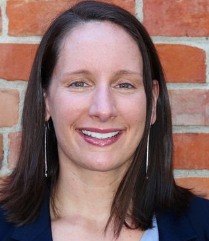I am privileged.
My husband and I are both still gainfully employed working from home; we can afford the internet speed and resources which make our futile attempt at homeschooling our first-grader bearable; and our family is for the time being [knock on wood] healthy.
Even with all of that, I recognize in my own home how short tempers are right now.
Earlier this week I gave myself a self-imposed 45 minute timeout after becoming irate when unloading the dishwasher.

Even in the best of times, child and sex abuse run rampant. Children have always been easy targets as they are less likely to report or be believed than their adult counterparts. Per the National Children’s Alliance, more than 700,000 incidents of neglect or abuse were reported in the United States in 2015.
According to Darkness into Light, a nonprofit dedicated to preventing child sex abuse, 1 in 10 children will be sexually abused before their 18th birthday and about 60% will never report that abuse to anyone.
This should be extremely alarming and not just because of this immediate harm to those particular children, but because of the cyclical nature present with abuse of any kind.
These statistics may be jolting to many, but what should be even more jolting are the risk factors which make physical and sexual abuse more likely to occur. According to the Mayo clinic, the following are some of the biggest risk factors that contribute to this: physical or mental illness, such as depression or post-traumatic street disorder (PTSD); family crisis or stress; including domestic violence and other marital conflicts, or single parenting; a child in the family who is developmentally or physically disabled; financial stress, unemployment, or poverty; social or extended isolation; poor understanding of child development and parenting skills; and alcohol, drug, or other substance abuse.
However, the most concerning risk factor is a history of being abused or neglected as a child. So the harm is not just to that individual child in the moment but can re-victimize them as they one day become parents and a possible perpetrator.
Some parents have more resources or space than others to cushion the catastrophic blow that is COVID-19, but none of us are immune to any of the risk factors above. We have all seen the record spike in unemployment claims and we are all painfully aware of the fact that schools will likely not open again until this Fall. As if the compounded stressors weren’t enough, we have shut down the channels through which children might otherwise get reprieve from such abuse: teachers are not able to lay eyes on their students and police departments are scaling back on their in-person reporting.

Sarah Henry
Many organizations have stepped up to the plate as best they can, but charitable giving alone is just a band-aid on a gaping wound. Beyond doing what we need to do to conquer COVID-19 as a community and nation, we need to demand a fundamental shift in the way in which we prioritize our children by prioritizing assistance to the parents caring for our children.
So what can be done right now?
As your legislatures are cutting checks to individuals and corporations: call to demand that there be funding to ensure internet access for everyone; demand that laptops or tablets be provided to all students in need of one; and demand that online mental healthcare be accessible and encouraged for everyone at this pivotal moment.
There are not good and bad people in this world. There are good and bad actions. At this time, more than ever, it is incumbent on all of us to push for a better society in which children are provided with what they need to thrive.
Sarah Henry is staff attorney for Children’s Law Center.
















